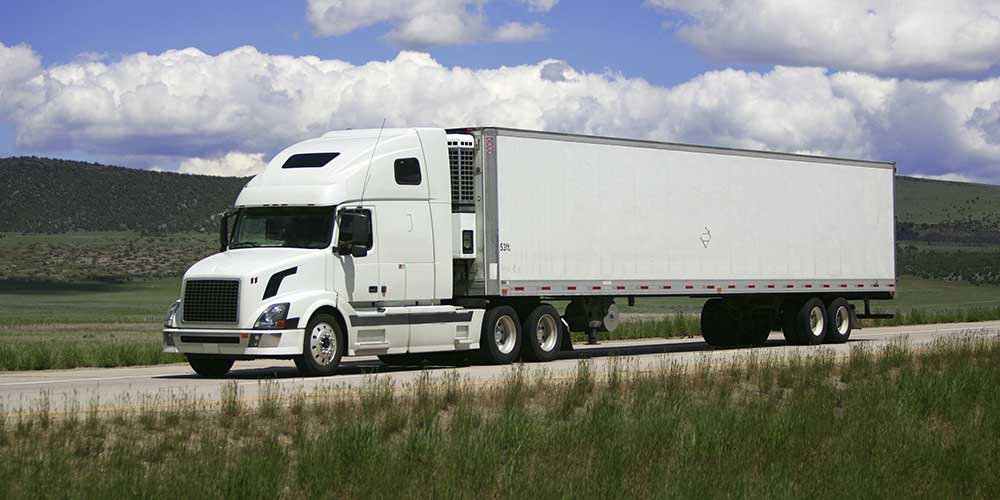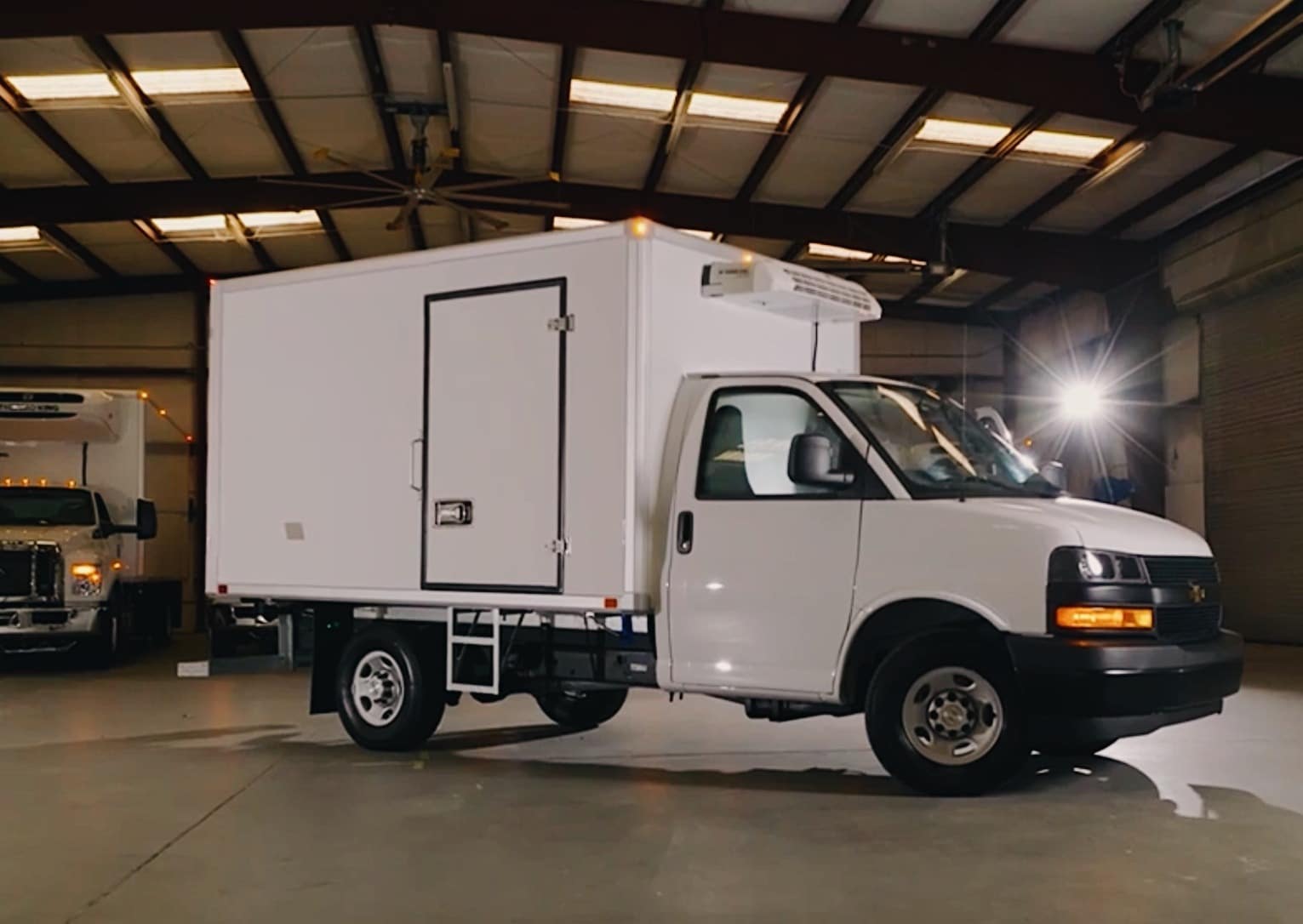Thermo King Transport Refrigeration: Quality Air Conditioning for Freight
Thermo King Transport Refrigeration: Quality Air Conditioning for Freight
Blog Article
Top Technologies in Transportation Refrigeration: Enhancing Performance and Security
The landscape of transport refrigeration is undertaking significant improvement, driven by innovations intended at improving both performance and safety. As these advancements proceed to develop, it is vital to discover their implications on operational techniques and governing conformity, prompting a better assessment of just how they reshape the future of transport refrigeration.
Smart Temperature Level Keeping An Eye On Systems
In the realm of transport refrigeration, wise temperature surveillance systems have emerged as an important innovation for guaranteeing the honesty of temperature-sensitive goods. These sophisticated systems take advantage of Net of Points (IoT) innovation to supply real-time information on temperature level variations, making it possible for drivers to preserve optimum problems throughout the supply chain. By continually tracking the temperature level of chilled containers and vehicles, business can quickly determine variances that may jeopardize product high quality.

Additionally, wise tracking systems often integrate automated signals and notices, enabling stakeholders to react quickly to any kind of prospective concerns. This proactive strategy not just minimizes the threat of spoilage yet additionally enhances conformity with regulatory requirements governing food security and pharmaceutical transportation.
The integration of data analytics within these systems additionally facilitates anticipating upkeep, assisting operators to foresee possible devices failures before they happen. This capacity reduces downtime and enhances functional efficiency, eventually causing set you back financial savings.
Eco-Friendly Refrigerants
Smart temperature level tracking systems play a vital duty in maintaining item high quality, but the performance of transport refrigeration likewise pivots on the selection of refrigerants made use of. As environmental worries rise, the change towards eco-friendly refrigerants has actually become imperative. Standard refrigerants, such as hydrofluorocarbons (HFCs), are infamous for their high Global Warming Prospective (GWP), adding significantly to climate modification. On the other hand, arising options like hydrocarbon-based refrigerants and hydrofluoroolefins (HFOs) existing lower GWP alternatives, offering both efficiency and sustainability.
These environmentally friendly refrigerants not just minimize environmental impact but also align with worldwide guidelines focused on terminating harmful substances. Their fostering can bring about boosted power performance, inevitably reducing operating expense for transportation refrigeration systems. Furthermore, using natural refrigerants, such as ammonia and carbon dioxide, has gotten grip because of their exceptional thermodynamic residential or commercial properties and lower environmental impact.
Buying environment-friendly refrigerants is not merely a governing compliance step; it stands for a critical decision that enhances brand name online reputation and cultivates client loyalty. thermo king transport refrigeration. By focusing on sustainable methods, business can add to a greener future while making sure the stability of transported items
Advanced Insulation Materials
Utilizing innovative insulation materials is critical for enhancing transport refrigeration systems, as they dramatically boost power performance and preserve regular temperature control. Typical insulation techniques often drop brief in stopping thermal transfer, leading to increased energy intake and fluctuating temperature levels within refrigerated areas.
Emerging materials such as vacuum cleaner protected panels (VIPs) and aerogels offer exceptional thermal resistance, enabling thinner accounts without jeopardizing efficiency. VIPs, for circumstances, utilize a vacuum cleaner layer to reduce convective and conductive warm transfer, making them excellent for space-constrained applications. Aerogels, known for their porous and light-weight framework, offer phenomenal insulation while considerably minimizing total system weight.
Moreover, integrating phase change materials (PCMs) right into insulation systems can better maintain temperatures during transit. These materials take in and release thermal energy, properly buffering versus external temperature variations.
The integration of these advanced insulation materials not only reduces the operational costs connected with power usage however likewise expands the service life of temperature-sensitive items. As the transportation refrigeration sector remains to advance, the fostering of ingenious insulation technologies will be essential in improving both efficiency and safety and security in cooled transportation.
Automated Course Optimization
The efficiency of transportation refrigeration systems is substantially enhanced via automated course optimization, which leverages innovative algorithms and real-time information to identify one of the most efficient paths for distribution. By examining different variables such next as traffic patterns, climate condition, and delivery home windows, these systems can dramatically decrease traveling time and fuel intake.
Automated path optimization decreases human mistake and subjective decision-making, which can bring about inefficiencies. This technology makes it possible for fleet supervisors to assign resources extra successfully, making certain that refrigerated items preserve their called for temperature level throughout the journey. By maximizing paths, companies can likewise enhance consumer complete satisfaction through prompt deliveries.
Additionally, automated systems can adapt to unpredicted conditions, such as roadway closures or sudden website traffic spikes, permitting vibrant rerouting. This flexibility not only safeguards the honesty of temperature-sensitive products yet also adds to total functional effectiveness.
Implementing automated path optimization can cause substantial expense savings while reducing the carbon footprint related to transportation. As services significantly focus on sustainability, this advancement sticks out as a vital part in modern-day transport refrigeration, straightening functional goals with environmental obligation. Ultimately, automated path optimization stands for a considerable development in the pursuit for performance and security in transport refrigeration.

Real-Time Data Analytics
Automated course optimization significantly benefits from the integration of real-time information analytics, which gives critical insights into the performance of transportation refrigeration systems. By utilizing real-time data, transport operators can keep an eye on temperature changes and equipment performance, guaranteeing that disposable goods are maintained within called for parameters throughout transportation. This aggressive approach not just enhances the high quality of the transferred items however additionally mitigates the threat of spoilage and loss.

Along with boosting effectiveness, real-time analytics enhances safety by making certain conformity with governing requirements for temperature control. This not just secures public health and wellness yet additionally fortifies a company's online reputation - thermo king transport refrigeration. As the transportation refrigeration market progresses, the combination of real-time data analytics becomes a foundation for driving innovation, sustainability, and functional excellence
Final Thought
In conclusion, the improvements in transportation refrigeration substantially enhance both effectiveness and security within the sector. Jointly, these advancements represent a vital advancement in transport refrigeration, making certain conformity with regulative standards and promoting a greener future.
The landscape this article of transportation refrigeration is undergoing substantial transformation, driven by technologies aimed at improving both efficiency and safety and security.Smart temperature tracking systems play a vital role in preserving product high quality, however the efficiency of transport refrigeration also hinges his explanation on the selection of refrigerants made use of. Their fostering can lead to boosted power effectiveness, eventually minimizing operating expenses for transport refrigeration systems. Ultimately, automated route optimization stands for a substantial innovation in the mission for effectiveness and security in transport refrigeration.
In conclusion, the advancements in transportation refrigeration substantially improve both effectiveness and safety and security within the market.
Report this page